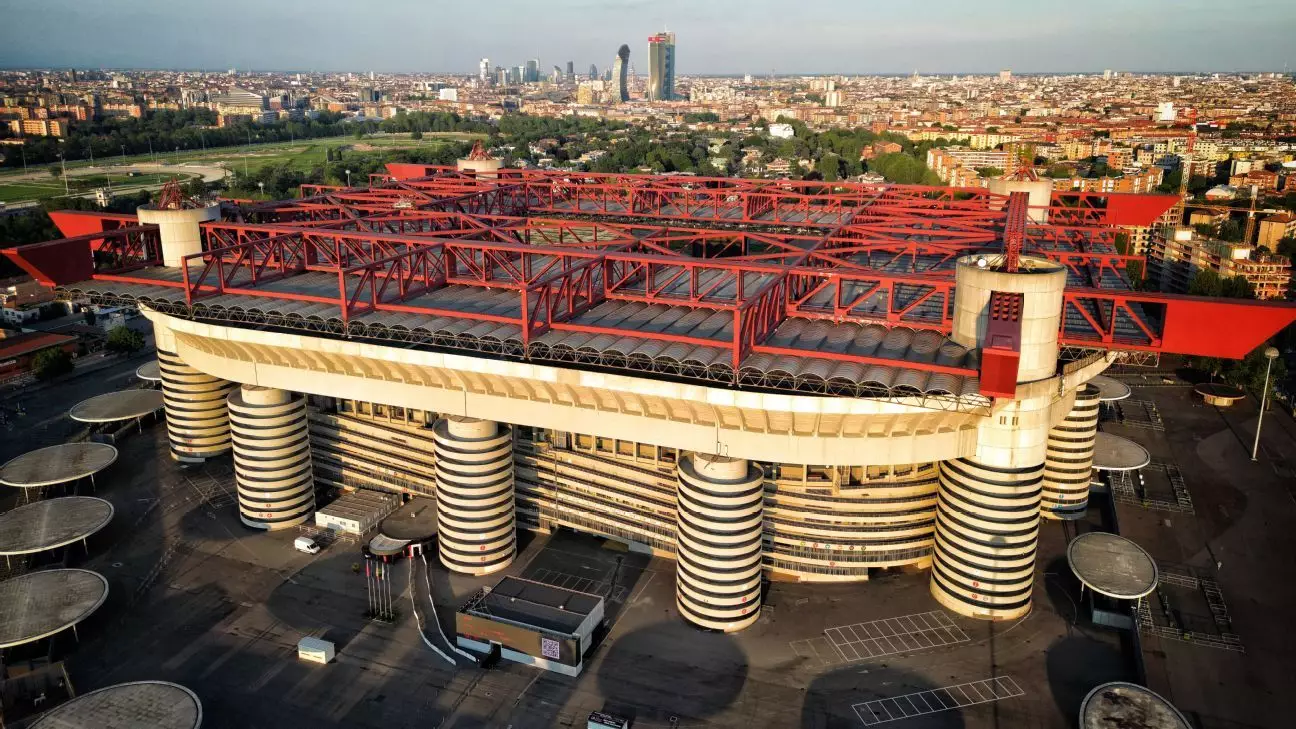The landscape of football continues to evolve as UEFA has reopened the bidding process for the prestigious 2027 Champions League final, following an unexpected decision to strip Milan’s iconic San Siro Stadium of its hosting rights. Once revered as a stronghold of European football, the San Siro has faced mounting challenges that have ultimately led UEFA to seek a new venue. The stadium, home to giants AC Milan and Inter Milan, last held the coveted final in 2016, when Real Madrid triumphed over Atlético Madrid in a thrilling penalty shootout.
Initially announced as the 2027 host city in May, Milan’s selection was contingent upon the Italian Football Federation (FIGC) providing comprehensive details regarding potential refurbishments of the aging stadium. The historic San Siro, which opened its doors in 1926 and boasts a capacity of 75,817, is now in a precarious situation as both Milan clubs contemplate transitioning to a new home field. The lack of clarity surrounding the financing for necessary renovations has cast a shadow over the stadium’s future, creating uncertainty in one of the world’s most storied sporting venues.
UEFA’s executive decision to rescind Milan’s hosting rights reflects the urgent need for assurance that the stadium and its surrounding infrastructure could withstand any ongoing renovations without interfering with the Champions League final’s requirements. The statement from UEFA underscored the municipality’s inability to guarantee that the stadium would be ready, prompting a shift in the final’s hosting plans.
This sudden change does not only affect Milan but sends ripples through the broader European football community. The Champions League final itself is one of the most-watched sporting events, and hosting it is a matter of great prestige for any city. With only Budapest and Milan having officially submitted bids for the finals in 2026 and 2027 earlier in the year, UEFA’s call for fresh expressions of interest means that cities that may not have previously considered bidding will now have the opportunity to showcase their capabilities.
Potential cities that could feasibly step in include footballing hubs like London, Barcelona, or Paris, all of which possess advanced infrastructure and a rich football culture. Their inclusion could turbocharge local economies while delivering exceptional experiences for fans around the world. The decision to vent the bidding process highlights UEFA’s commitment to ensuring that the championship final is held in a venue capable of enhancing the spectacle and grandeur that football fans expect.
As the 2025 Champions League final approaches, set to be hosted at Munich’s Allianz Arena on May 31, the timing of UEFA’s announcement invites speculation about the future of football’s prestigious events. With a variety of cities potentially vying for the spotlight, the landscape of hosting could be invigorated, diversifying venues for future finals. In a football world replete with uncertainty, the need for adaptability and foresight has never been more significant. Football fans eagerly anticipate where the next chapter of the UEFA Champions League final will unfold, marking a new era of competition and excitement.

